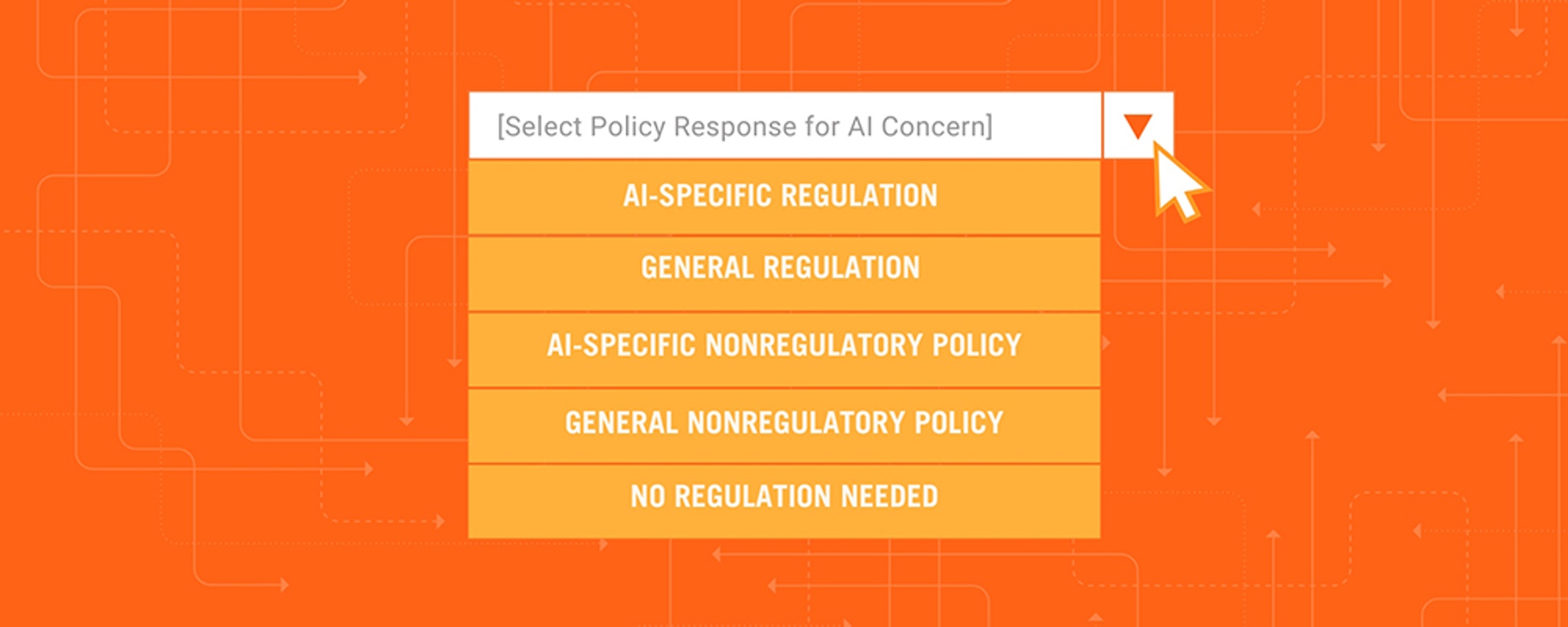Data Innovation
Navigate forward to interact with the calendar and select a date. Press the question mark key to get the keyboard shortcuts for changing dates.
Navigate backward to interact with the calendar and select a date. Press the question mark key to get the keyboard shortcuts for changing dates.
As every sector of the global economy and nearly every facet of modern society undergo digital transformation, ITIF advocates for policies that spur not just the development of IT innovations, but more importantly their adoption and use throughout the economy. ITIF’s Center for Data Innovation formulates and promotes pragmatic public policies designed to maximize the benefits of data-driven innovation in the public and private sectors.

Vice President and Director, Center for Data Innovation
Information Technology and Innovation Foundation
Read BioFeatured
More Publications and Events
March 2, 2026|Events
Tech Policy 202: Spring 2026 Educational Seminar Series for Congressional and Federal Staff
ITIF’s spring seminar course explores core emerging technologies and issues that are reshaping our world and, in the process, creating public policy challenges and opportunities. The course is open to congressional and federal staff only.
January 7, 2026|Blogs
New York’s AI Safety Law Claims National Alignment but Delivers Fragmentation
New York’s AI safety law claims alignment with California, but its small deviations create duplicative state requirements that fragment U.S. AI policy and increase compliance costs without improving safety.
December 16, 2025|Blogs
Europe’s ePrivacy Reforms Are Too Late—and Too Small
The European Commission’s proposed tweaks to the ePrivacy Directive offer only minor relief from intrusive cookie prompts, but to truly support innovation, free digital services, and Europe’s competitiveness, policymakers must fundamentally overhaul the outdated consent model.
December 12, 2025|Blogs
Why the DMA Interoperability Investigations Poison Innovation
The DMA’s forced interoperability undermines platform differentiation, weakens security and reliability, and ultimately leaves European consumers with degraded versions of global technologies.
December 5, 2025|Blogs
Europe Writes the Rules and the World Pays the Price
The EU’s digital rulebook, often praised as global leadership, instead forces many non-EU countries into costly regulatory alignment that stifles local innovation and entrenches global digital inequality, underscoring the need for more flexible, locally tailored frameworks.
December 4, 2025|Op-Eds & Contributed Articles
Banning AI Superintelligence Would Be a Historic Mistake
In an op-ed for The Dispatch, Daniel Castro argues that banning superintelligent AI is misguided because it’s based on speculation, would undermine U.S. innovation and security, and should be replaced with strong oversight—not restrictions on advancing knowledge.
November 24, 2025|Op-Eds & Contributed Articles
China, US Can Compete and Cooperate on AI
In China Daily, Daniel Castro argues that the U.S. and China face AI risks—like models enabling biological threats or cyberattacks—that are too great for either to manage alone, and can be mitigated through coordinated safety measures such as joint research, incident reporting, and red-team testing.
November 24, 2025|Blogs
Why Objections to Federal Preemption of State AI Laws Are Wrong
Fifty conflicting state AI laws create a fragmented, innovation-crushing patchwork, which federal preemption can solve by establishing a single, coherent national framework for AI regulation.
November 20, 2025|Events
Improving Workplaces With Data and Technology
Watch now for a panel discussion on how data and technology can create safer, healthier, and more productive workplaces, and the policies needed to encourage adoption while protecting workers.
November 18, 2025|Presentations
U.S.-Japan Technology Cooperation: Shaping the Future of AI and Quantum
Hodan Omaar spoke about opportunities for US-Japan collaboration on AI governance and quantum technology at an event hosted by the National Bureau of Asian Research.








